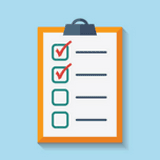News and Updates
Exploring your substance use: understanding and changing habits
Written by: Emma-Tyme Mayrand | Mental Health and Wellness Editor, Starling Minds | B.A. Psychology
Can thinking about your substance use curiously and empathetically lead you to better wellbeing? What if we allowed ourselves to look at substance use without fear and stigma?
Altering habits, whether through reduction or sobriety, is often seen as a response to “problematic substance use.” This stigma prevents a wide range of individuals from reflecting on their habits, let alone making changes, due to the fear of being labelled as having a problem. If we can make a shift to destigmatize the conversation around substance use and remove the societal barriers, we can move towards claiming our agency and making positive changes.
The Spectrum of Substance Use: A Deeply Personal Experience
Each journey and relationship with substances is unique. While weekly consumption guidelines offer a helpful starting point for understanding your habits, the patterns of substance use are far more nuanced and individualized. We each have our own unique patterns and reasons for what, when, and why we consume substances.
The First Step in Questioning Your Substance Use
Recognizing habitual patterns starts with the willingness to not just ask meaningful questions, but to answer them honestly, with curiosity and the absence of judgment. This openness is essential for deeper self-awareness and lasting behavioural changes.
Ask yourself the following questions about your substance use. Don’t be afraid to dig deep and get specific.
When do I turn to substances?
- Is it a certain time of day? Certain days of the week?
- Does my when depend on external factors, like special events, or internal factors, like when I feel stressed, anxious or excited?
- Am I indulging more routinely or on occasion?
With whom do I indulge?
- Do I indulge only with specific people, or alone?
- Am I selective about my company when indulging?
Where do I turn to substances?
- Within the privacy of my own home? At the bar? At celebratory events?
Which substance(s) do I lean towards?
- Do I lean more towards alcohol, cannabis, hallucinogens or stimulants?
- Is my choice dependent on my environment?
Consider using the diagram below as a base to map out your thoughts:
These questions will provide you with a blueprint as to when you turn to substances. The next step is to ask why for each question.
Why do you indulge under the above circumstances? Feel encouraged to continuously question why to as many answers as necessary. Once you understand your why, you can begin to separate the “need” for your substance from the underlying value.
Consider the example below:
Practical Strategies
Whether you’re looking to reduce the frequency of substance use in your life, or improve your self-awareness so that consumption is a conscious and intentional decision rather than a default behaviour, here are some tips to help you attain your goals:
- Experiment: Without making a lifelong commitment, remove substances from your typical routine. Make the choice to slowly experience certain life events and day-to-day activities without using drugs or alcohol to alter how you feel.
- Journal: Use a journal to monitor areas like your moods, motivation, presence, energy levels, the quality of your sleep, and your relationships. Keep track of any changes over time.
- Suggested Journal Prompts:
- How and from whom did I learn to indulge in the ways I do? Do I still share the same values that I was raised with?
- What do I feel I could gain from changing my habits? What opportunities might I find and why?
- Suggested Journal Prompts:
- Question your impulses: When you hear that inner voice saying “I need a drink” at the end of a long day, question it. Let the urge fully come into your awareness and ask yourself “why?” Evaluate whether it aligns with your personal goals, beliefs and values.
- Find other pleasures: Without putting all your pleasure eggs in one basket, learn what brings you pleasure outside of substances. For example, spend time with the people who make you feel more alive or find a hobby that feels good for your body and mind.
- Build community: You might notice varying levels of support from people as you make changes. Stay steadfast in your goals and spend time with those who nurture your emotional security and encourage positive changes for your personal well-being.
Conclusion
While this might be the beginning of your journey to claim your agency and feel empowered in your decisions about substance use, keep in mind that this exploration is not something you can fail at. Every insight and decision is a learning opportunity to build a healthier relationship with substances. Understanding and changing substance use habits provides us with the opportunity to better align ourselves with our beliefs and values, with the goal of improving our overall quality of life.
To dive further into understanding and changing your substance use habits, sign into your Starling Minds account and check out the new “Transforming Your Substance Use” module.
New to Starling Minds? Visit otipraeo.starlingminds.com to register today! All OTIP members, including RTIP, Home, Auto, and Life Insurance customers, can access Starling Minds to better understand their mental health, access substance-use support, find strategies for anxiety or depression, manage stress, and more.





